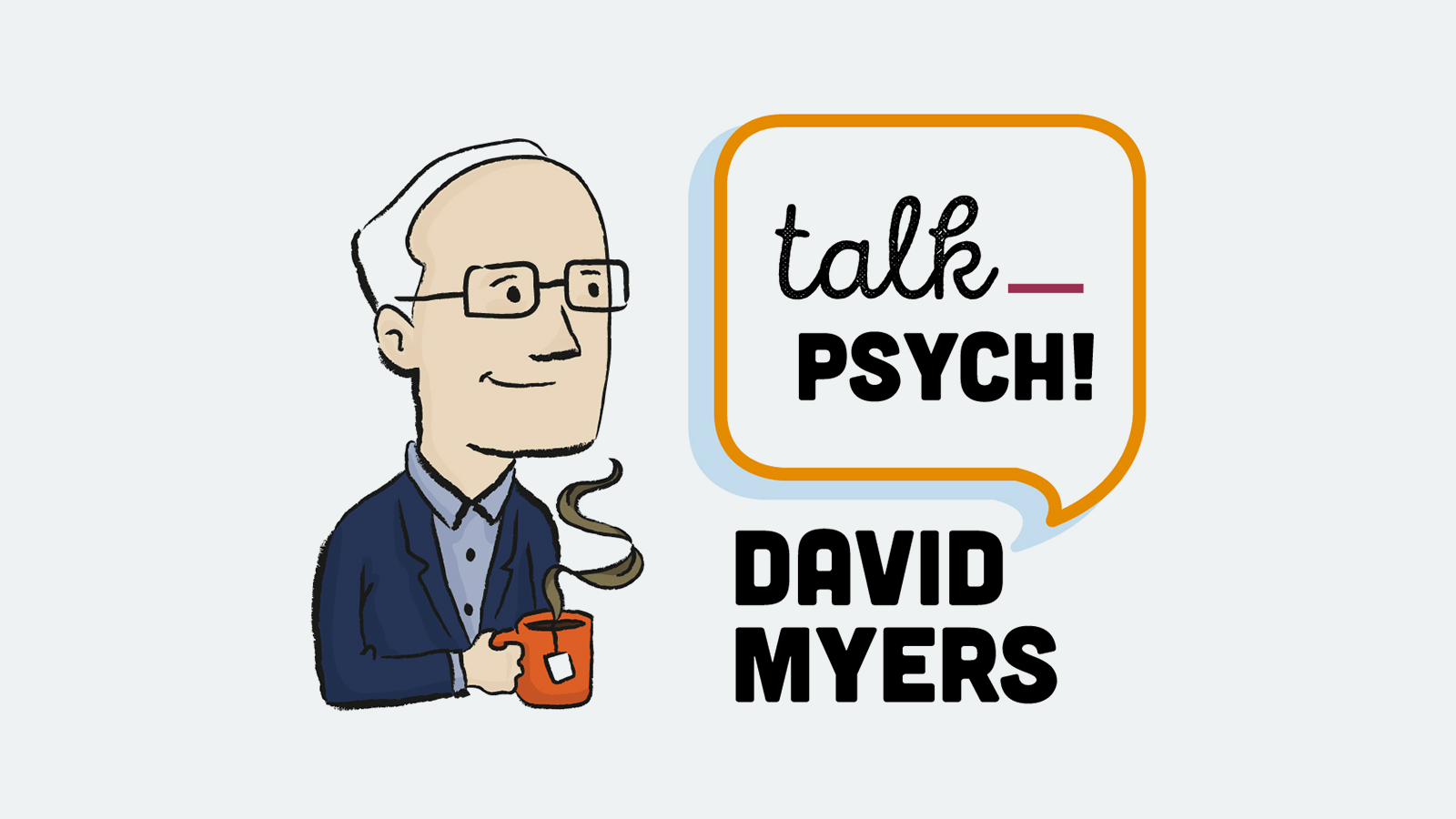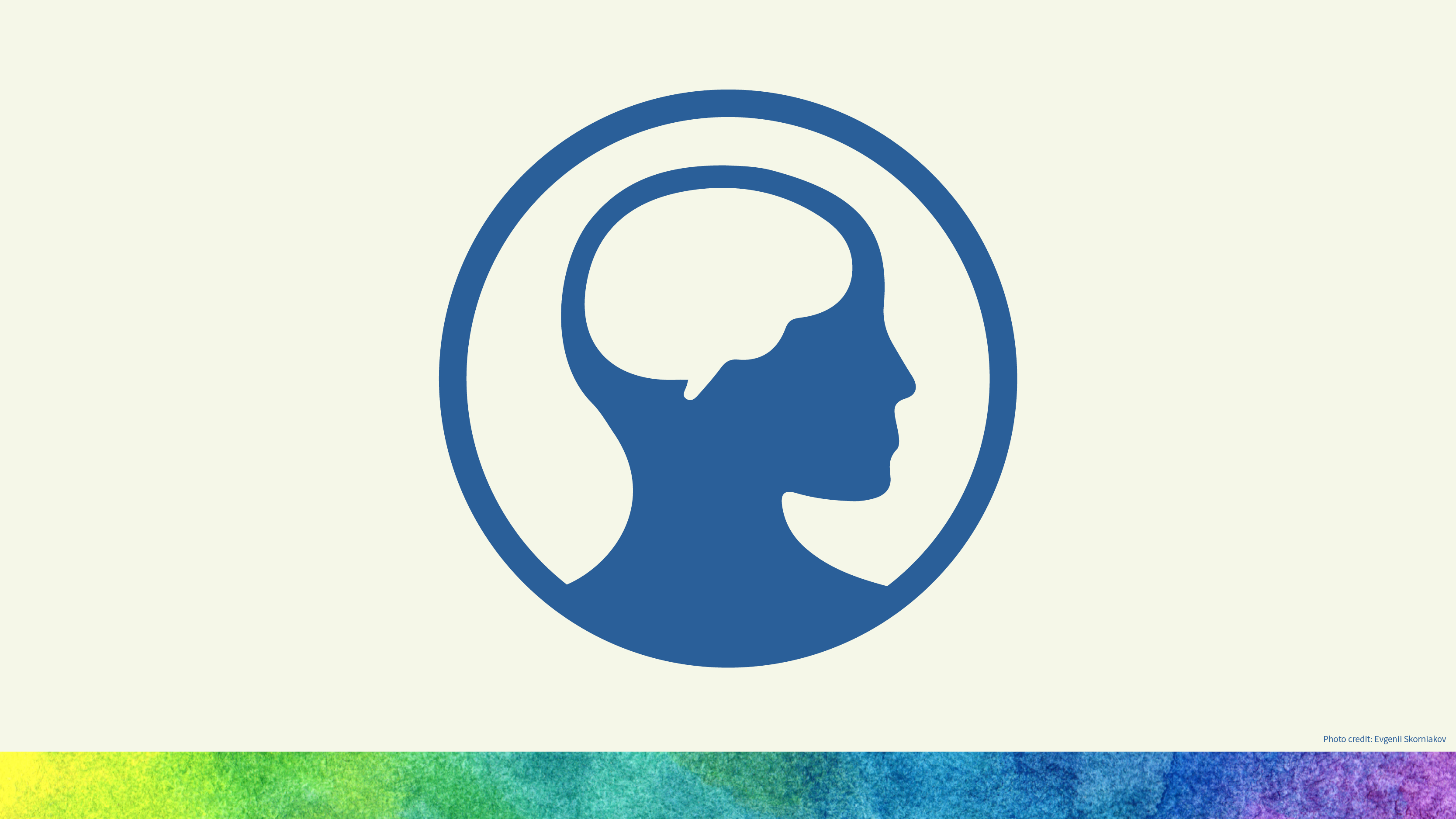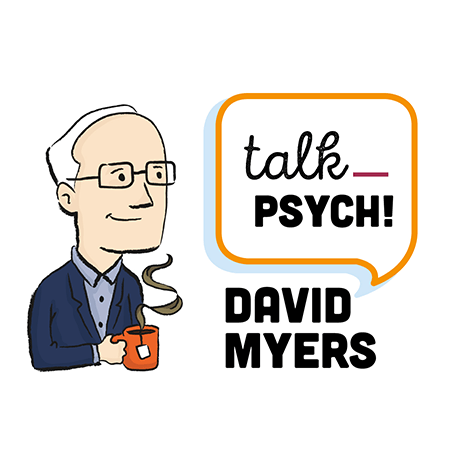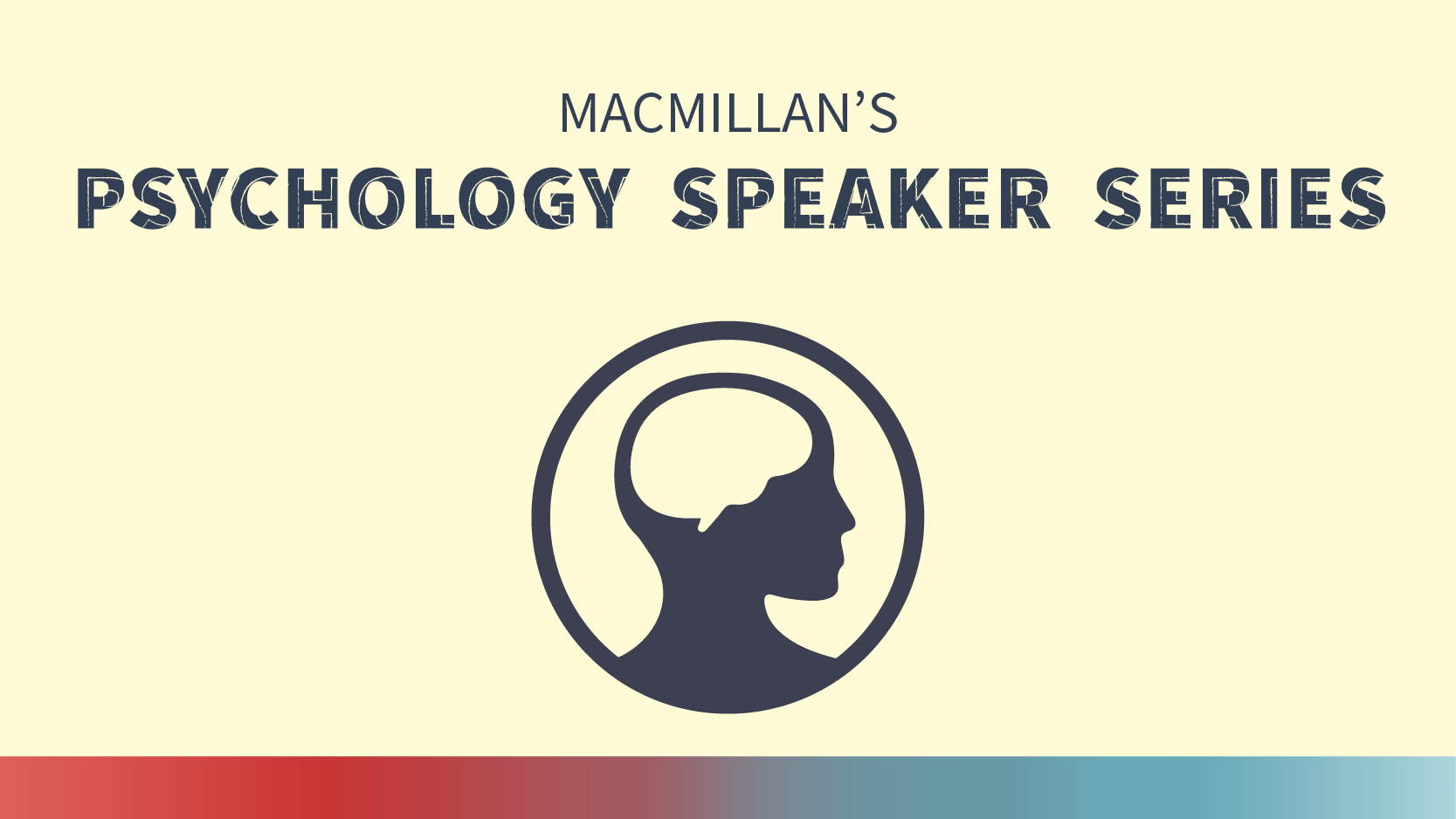-
About
Our Story
back- Our Mission
- Our Leadershio
- Accessibility
- Careers
- Diversity, Equity, Inclusion
- Learning Science
- Sustainability
Our Solutions
back
-
Community
Community
back- Newsroom
- Discussions
- Webinars on Demand
- Digital Community
- The Institute at Macmillan Learning
- English Community
- Psychology Community
- History Community
- Communication Community
- College Success Community
- Economics Community
- Institutional Solutions Community
- Nutrition Community
- Lab Solutions Community
- STEM Community
- Newsroom
- Macmillan Community
- :
- Psychology Community
- :
- Psychology Blog
- :
- Psychology Blog - Page 31
Psychology Blog - Page 31
Options
- Mark all as New
- Mark all as Read
- Float this item to the top
- Subscribe
- Bookmark
- Subscribe to RSS Feed
Psychology Blog - Page 31
nathan_dewall
Migrated Account
07-20-2016
10:43 AM
Originally posted on May 9, 2014. The next time you’re facing potential social rejection, what should you do? New evidence suggests a puff of pot reduces the pain of rejection. But before we get to the pot smoking, how did we hatch this idea? Like most ideas, it was formed over an informal conversation. Previously, we had shown that the physical painkiller acetaminophen numbs people to the pain of rejection. Now we wanted to see whether another drug that works through similar brain receptors would also reduce the pain of rejection. It just happened that marijuana fit the bill. In four studies, participants reported how often they smoked marijuana. Next, we measured their feelings of social exclusion or manipulated how socially excluded they felt. Finally, we measured participants’ emotional distress. The four studies yielded a similar pattern: marijuana reduced the pain of rejection. What is the takeaway message? Rejection hurts, and drugs that reduce physical pain also lessen the pain of rejection. Don’t smoke up to prove a point. Just know that rejection is serious. When you’re feeling lonely, reach out to friends before you reach for a roach clip.
... View more
0
0
1,261
nathan_dewall
Migrated Account
07-20-2016
09:29 AM
Originally posted May 13, 2014. We might not realize it, but our names hold the key to how much people trust us. Our actual name might not matter. It is how easily you can pronounce a person’s name that counts. Imagine the following scenario. You walk into an auto repair shop to get your car fixed. A smiling man greets you at the door, shakes your hand, and says, “How are you?” You look at his uniform, which has his name printed in an oval patch. It says, “Yvgeny.” Having spent no time in Russia, you struggle to pronounce his name. Would your botched pronunciation affect how much you trusted your would-be mechanic? It would. In a recent investigation, people with easily pronounceable names, versus hard to pronounce names, were rated as less dangerous, more positive, and more trustworthy. The next time you struggle to pronounce someone’s name, give that person a break. We don’t pick the names our parents give us. Should we also give more credit to those who have triumphed despite having hard to pronounce names? Did Quvenzhané Wallis need to do more to earn her Oscar nomination than Naomi Watts did? We’ll never know. Until we do, think of the people you choose to include in your life. We have limited energy and only include a few people in our social networks. Of the ones you chose, did their easy to pronounce names give them an edge?
... View more
Labels
0
0
1,552
nathan_dewall
Migrated Account
07-20-2016
09:18 AM
Originally posted on May 15, 2014. Each day we face stressors. Our pets get sick, lightning strikes the office, or we miss loved ones. New research identified another stressor lurking in our midst: men. This research, which was reported by the New York Times, showed that rats and mice get stressed out when they’re around men. Even catching a whiff of a men’s t-shirt was enough to raise their stress hormones. The scent of a woman didn’t increase stress. Most men don’t consider themselves stressors. When I walk into a classroom, I tell my students my mission: Motivate Encourage Advocate Learn But these findings suggest that no matter what I do, my maleness may spike their stress levels. The good news is that our bodies adjust. The first day of class might be stressful, especially when you have a male instructor. Over time that stress should wash away. How far can we extrapolate these findings? Although exposure to a single male increases stress that eventually drops off, what if people were constantly bombarded with men? In societies where men outnumber women, would stress levels peak? My next post will answer that question.
... View more
Labels
0
0
1,720
nathan_dewall
Migrated Account
07-20-2016
09:14 AM
Originally posted on May 16, 2014. Being around men increases stress. Do countries with more man than women have higher stress levels? In my last post, I promised to answer this question. But it’s a harder question than it seems. How do you measure a country’s level of stress? Some organizations, such as Gallup, do an excellent job surveying people around the world. I don’t work at Gallup, nor do I have access to their data. So I had to do the best I could. First, I gathered country gender composition data from our friends at the World Bank. I separated countries according to whether they had a majority of male or female citizens. The average was 50.77% women (standard deviation 1.19; Minimum: 48.19%, Maximum: 54.30%). Of the 74 countries for which data were available, 19 were male-majority and 55 were female-majority. Next, I searched for a good, comprehensive measure of country-level stress. Bloombergmade things easy. They computed a country’s stress score by combining seven factors: Annual Homicide Rate per 100,000 Gross Domestic Product (GDP) per capita Income inequality (Gini coefficient) Corruption (as measured by Transparency International) Unemployment rate Urban air pollution (micrograms per cubic meter) Life expectancy (years at birth) Finally, I compared country-level stress between male-majority and female-majority countries. This would give me an initial answer to my question. What were the results? Countries with more men than women, compared to their female-majority counterparts, had higher levels of stress. Three factors drove the effect: corruption, pollution, and life expectancy. In each case, more men than women equaled a more corrupt, polluted, and shorter lived society. A close fourth, which wasn’t quite statistically significant (p= .063), was Gross Domestic Product per capita. If a country had a male majority (vs. female majority), GDP was lower. These findings offer a novel extension to the finding that being around men, versus women, increases rodent stress. But unlike those careful laboratory experiments, people weren’t randomly assigned to live in male- or female-majority countries. We can’t infer cause and effect. All we can conclude is that when men are present, stress seems to rise instead of fall.
... View more
0
0
1,797
nathan_dewall
Migrated Account
07-20-2016
09:12 AM
Originally posted on May 20, 2014. Three years ago, I gained a new appreciation of consciousness. My mom had an accident that caused her brain to bleed. It seemed to rip away her consciousness. As I slept next to her bed before she died, I wondered, “Is she conscious of what’s happening?” New research suggests that the brain can give us a clue. Prior to this research, you had limited options to know if someone had consciousness. You could ask them. That’s easy. But what about those cases, like my mom’s, when a person hasn’t experienced brain death but is still unresponsive? To find out, researchers scanned the brain of a woman who was in a vegetative state. They asked her to imagine playing tennis, along with several other activities. The results, published in Science, made a big splash. Although the woman couldn’t answer the questions, her brain did. When she imagined playing tennis, her brain reacted by increasing blood flow to the motor cortex. She was immobile, but her brain acted as if she was playing on Wimbledon’s Centre Court. To watch a wonderful video of the researcher leading this effort, click here. It might change the way you think about consciousness. I know it helped me.
... View more
1
0
1,524
nathan_dewall
Migrated Account
07-20-2016
09:02 AM
Originally posted on May 22, 2014. Runners pop up everywhere. They run alone, in pairs, and in mass hordes through major cities. Running can improve health. But what about extreme running? Is 100 miles too far? I get this question a lot. I run ultramarathons. An ultramarathon is any foot race longer than a standard 26.2 mile (42.2 kilometer) marathon. In the past year, I’ve run nine ultramarathons. This includes two 50 kilometer (31 miles) races, one 60 kilometer race (a little over 37 miles), a six hour timed event where I officially ran 40 miles (I got lost and ran a couple “bonus” miles, too), three 50 mile races, and two 100 mile races. When people learn about my running, they often ask two questions. The first is, “Why do you do that?” I like the challenge, they make me feel good physically and emotionally, and I love the camaraderie. The second question is almost always, “Is that good for you?” Many people think running isn’t good for you. “It’s bad for your knees,” many people tell me. When it comes to extreme running, the possible harm only increases, right? “Didn’t you hear about the ultrarunner, Caballo Blanco, from the book Born to Run? He died while running. That proves it.” Before we rush to judgment, let’s look at the data. When we do that, we’ll find two things. The first is that we don’t really know much. There aren’t many people who run ultramarathons. The sport is growing, but we’re a niche group. In late April, I ran a 100 mile race. 185 people started. Compare that to the most selective American marathon, the Boston Marathon, which in 2014 had 35,671 starters! The second thing we’ll learn is that ultrarunners have pretty good health. In one recent study, ultrarunners, compared to the general population, had better physical health, mental health, and missed fewer days due to illness. They do tend to have more allergies and asthma, which is probably due to wheezing from the gorgeously pollinated trails they traverse. Other research shows that ultrarunners have longer telomeres – DNA strands at the end of chromosomes that often shrink with age. With longer telomeres, ultrarunners may be less vulnerable to disease. So, we now have a better perspective on whether ultrarunning is good for you. You don’t have to run 100 miles to reap the benefits of running. Simply take one more step today than you did yesterday.
... View more
Labels
0
0
1,226
nathan_dewall
Migrated Account
07-20-2016
08:58 AM
Originally posted on May 27, 2014. Psychology is ripe with history. Unlike many sciences, psychology grips us because we are its main characters. People have more experience with quarrels than with quarks. But one of psychology’s most famous case studies continues to evolve. So, I ask, will the real Phineas Gage please step forward? The name Phineas Gage might not perk up a person’s ears as easily as Freud, Bandura, or Skinner. But the story of Phineas Gage occupies precious real estate in most psychology textbooks. He showed the world that people can survive a major brain trauma. Yet understanding his post-accident life grows fuzzier over time. In a recent article that foreshadows the upcoming book, “The Tale of the Dueling Neurosurgeons,” Sam Stein argues that what we think we know about the most famous name in neuroscience needs historical revision. Did Gage really become a psychopath? Why do people ignore Gage’s major life events, such as when he tried to make a new life in Chile? We’ll never know the true Phineas Gage. The riddle will always be partly unsolved. That isn’t such a bad thing. Sifting through material will inspire new questions—with the hope that they will inform how we understand friends, loved ones, or the many others who have suffered traumatic brain injuries.
... View more
0
1
2,070
nathan_dewall
Migrated Account
07-20-2016
08:56 AM
Originally posted on May 29, 2014. How would you like to increase your brainpower? All you need is a 9-volt battery, some mad scientists, and a heaping portion of creativity. So says a slew of recent studies using a noninvasive, neuroscientific technique called transcranial direct current stimulation (tDCS). Think of tDCS as the ultimate symphony conductor. It can pep up certain brain regions by exciting neuronal impulses. But it can also quiet a crowd of neurons by decreasing their firing rate. A 9-volt battery powers the electrodes that rest on people’s scalps, giving people a slight twinge as the equipment increases or decreases their brain activity. In one study, Air Force pilots who received frequent tDCS stimulation, compared with those who didn’t, learned more information in less time. But tDCS isn’t merely a way to learn better. It can help people cope with upsetting situations. In a pair of papers, my colleagues and I showed that stimulating a brain region that aids emotion regulation reduced rejection-related distress and aggression. To succeed, people need some combination of talent, grit, and luck. Should a personal brain zapping machine get added to the list?
... View more
Labels
0
0
1,396
nathan_dewall
Migrated Account
07-20-2016
07:58 AM
Originally posted on June 2, 2014. We receive help every day. I don’t grow the food I eat, knit the clothes I wear, or assemble the TV I try to avoid. I don’t even cut my own hair. Nope, I rely on others to help me. But how do I get help when it involves asking? Amidst a recent report showing low levels of helpfulness among college professors (especially toward members of minority groups and women), I thought it would be good to help readers know how to increase helping. Here are the top 5 ways to do it (adapted from Latané and Darley, 1970). Notice help is needed. This goes both ways. I need to be aware that other people might need my help. I also need to make sure other people know I need help by asking. Realize when help is needed. If it’s an emergency, let people know it. Take personal responsibility for helping. Ignore what other people do. If you see someone in need, don’t wait for someone else to do the job. To quote Mahatma Ghandhi, “We need not wait to see what others do.” Make a decision to help. Think of this as the step between you wanting to help and you actually helping. Help! Now that you’ve made your decision, it’s time to put some feet on it. Take action and help.
... View more
Labels
0
0
6,339
nathan_dewall
Migrated Account
07-20-2016
07:57 AM
Originally posted on June 10, 2014. Many people run to enjoy better health, lower stress, and a slight endorphin buzz. But does running also zap our memories? To find out, researchers traded in their lab coats for workout clothes and put some adult guinea pigs on a serious running schedule. Others guinea pigs were assigned to a couch potato condition. Next, they tested how well the pigs remembered situations that used to terrify them. What happened? The runners forgot their fears. Faced with the prospect of painful electric shock, the runners fearlessly galloped. The couch potatoes cowered. This study might change how you respond the next time you hear a runner say, “I run to clear my head.”
... View more
Labels
0
0
995
nathan_dewall
Migrated Account
07-20-2016
07:56 AM
Originally posted on June 19, 2014. We’ve all experienced the pleasure and subsequent pain of mindless eating. Just sit in front of the TV, open a bag of chips, and watch your favorite show. Now do the same thing with the TV off. In which situation did you eat more? Mindless eating made Brian Wansink a household name. This guy’s research oozes coolness. Need proof? Just watch this video to see how he made people guzzle quarts (yes, quarts!) of soup by having them spoon it out of a bottomless bowl. It won him the 2007 Ig Nobel Prize. If mindless eating makes us unhealthy, would mindful eating make us healthier? According to a recent study, Yes. People who practiced mindful eating, compared those who did not, ate healthier foods and had healthier weights. At your next meal, don’t agonize over every bite. But also avoid putting your brain on cruise control. A healthy awareness and attention to the food we eat can motivate use to use the highest quality food to fuel our brains and bodies.
... View more
Labels
0
0
1,470
nathan_dewall
Migrated Account
07-20-2016
07:54 AM
Originally posted on July 10, 2014. Why don’t people vote? This question puzzles pollsters, political candidates, and people who cherish the right to choose their elected officials. To predict voter turnout, all you might need is a test tube, a willing participant, and a little saliva. So says a group of University of Nebraska-Omaha researchers, who tested the hypothesis that the stress hormone cortisol would predict voting behavior. Stress often leads people to avoid high pressure situations. If people have high cortisol levels, voting might only increase their stress. They might fear that their chosen candidate would lose the election, or that the candidate would underperform if elected. As a result, stressful souls might avoid the polls. In the study, people spit in a tube to provide a measurement of their cortisol levels. Next, the researchers collected the study participants’ actual voting behavior in six U.S. national elections. Sure enough, the most stressed out people voted about half as often as their more relaxed counterparts. To get people to vote, politicians might frame voting as a relaxing activity. “Take a break from work, relax, and make a difference in your community,” might help get even the most stressed out people to visit the polls.
... View more
Labels
0
0
1,431
nathan_dewall
Migrated Account
07-20-2016
07:50 AM
Originally posted on July 17, 2014. Lloyd Cosgrove was his town’s city manager, butcher, and Presbyterian minister. He had a shiny head, bushy eyebrows, and a whooping laugh. If you want Lloyd to remain unique, try not to think about him too much. Why? Repetition breeds bland memories. Our brain’s memory center, the hippocampus, leaves different traces of information each time we call up something from our past. This is why our memories of the same past events shift. What gets left behind are the details. You might forget that Lloyd was a butcher or blocked out his whooping laughter. Or you might invent new details about him. Was he a Presbyterian or Lutheran minister? A city manager or a city councilman? Memory is a funny thing. In a recent study, people who rehearsed an event three times recalled fewer details compared with people who rehearsed the same event once. Repetition improved how well people recognized pieces of information, but it squeezed out the details. We might romanticize details. Do I need to remember the outfit my wife wore on our first date? (I do.) Do I need to remember where I ate my first taco? (I don’t.) Or should I become content that the details that add color, meaning, and spice to my daily experiences will become gray, hallow, and bland the more my memory plays them back? Ask me tomorrow. I’ll have a different memory of the question than I do today.
... View more
nathan_dewall
Migrated Account
07-20-2016
07:49 AM
Originally posted on July 22, 2014. Social support can take many forms. A helpful tweet, the annual Facebook birthday barrage of well wishes, and long conversations with friends and family can put things in perspective and reduce our stress. But, according to recent research from Renison University, Wilfrid Laurier University, and the University of Waterloo, these acts of kindness backfire when interacting with people who have low self-esteem. People with low self-esteem have social support preferences that often put them on a collision course with their friends and family. They desire information that validates their negative self-feelings. When their friends offer positive feedback, people with low self-esteem don’t accept it. This aversion to positivity causes low self-esteem spillover: Their friends begin to feel bad about themselves, too. What is the moral of the story? Find someone who has a similar self-concept as you do. Birds of a feather should often flock together. Although it might be hard to imagine wanting information that validates our negative self-feelings, it is unwise to force people to enjoy something they dislike. Knowing yourself and what you like is the first step in building a successful relationship. The next step is finding someone who shares your preferences, no matter how sunny or gloomy they might be.
... View more
0
0
1,704
nathan_dewall
Migrated Account
07-20-2016
07:48 AM
Originally posted on August 5, 2014. We live in an era of mental fatigue. People sleep less, work more, and experience more stress now than any other time in recent history. How can we overcome mental fatigue? People go to extreme lengths to pep themselves up. They guzzle energy drinks, smoke cigarettes, or drink coffee and tea. But a growing trend, especially among college students, is to use psychotropic medications to battle mental fatigue. Many students abuse the popular drug, methylphenidate (also known as Ritalin), because they think it will improve their concentration when fatigued. Are the students right? To examine this question, researchers at the University of Michigan randomly assigned students to consume either Ritalin or a placebo pill. Next, the students completed a boring task. Crucially, half of the students completed a version of the task that was not only boring – it also made them mentally exhausted. The rest of the students were bored, but their mental faculties were left intact. What happened? Taking Ritalin undid the effects of mental fatigue. So, in a way, these findings offer a clue about why students abuse Ritalin. Students might not want a cheap buzz; they may simply want to overcome their exhaustion. In my next post, I’ll offer five healthier and safer options to deal with mental fatigue.
... View more
Labels
0
0
1,526
Topics
-
Abnormal Psychology
16 -
Achievement
3 -
Affiliation
2 -
Behavior Genetics
2 -
Cognition
33 -
Consciousness
32 -
Current Events
26 -
Development Psychology
18 -
Developmental Psychology
30 -
Drugs
5 -
Emotion
55 -
Evolution
3 -
Evolutionary Psychology
4 -
Gender
17 -
Gender and Sexuality
7 -
Genetics
10 -
History and System of Psychology
6 -
History and Systems of Psychology
5 -
Industrial and Organizational Psychology
47 -
Intelligence
6 -
Learning
63 -
Memory
37 -
Motivation
13 -
Motivation: Hunger
2 -
Nature-Nurture
5 -
Neuroscience
45 -
Personality
29 -
Psychological Disorders and Their Treatment
21 -
Research Methods and Statistics
98 -
Sensation and Perception
43 -
Social Psychology
121 -
Stress and Health
51 -
Teaching and Learning Best Practices
54 -
Thinking and Language
18 -
Virtual Learning
25
- « Previous
- Next »
Popular Posts








